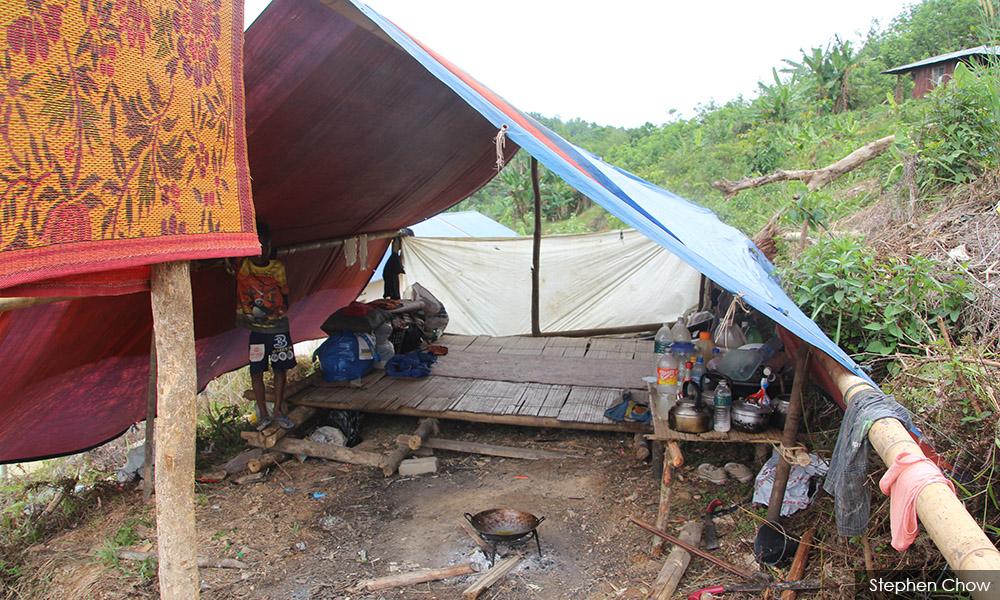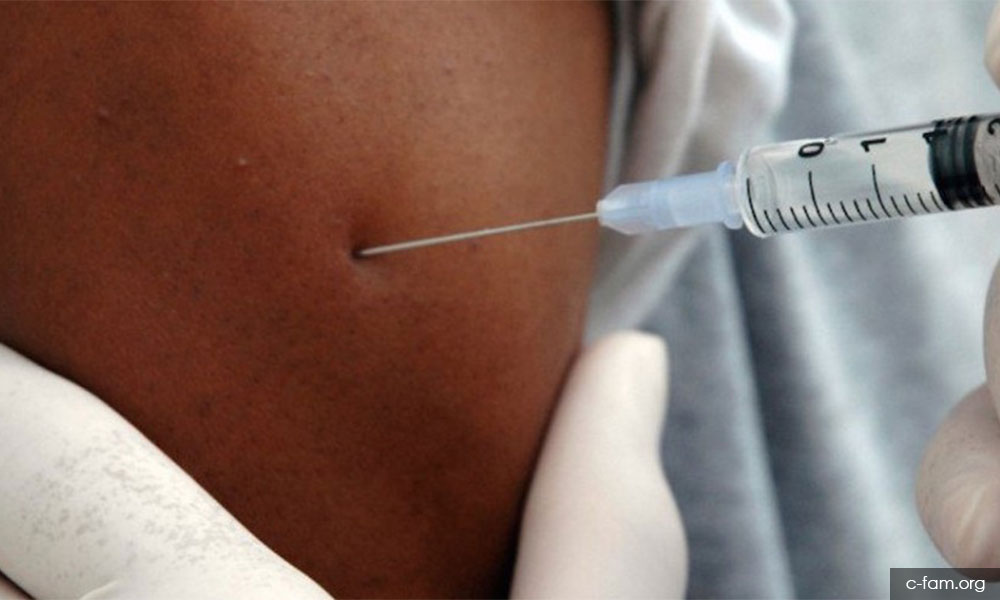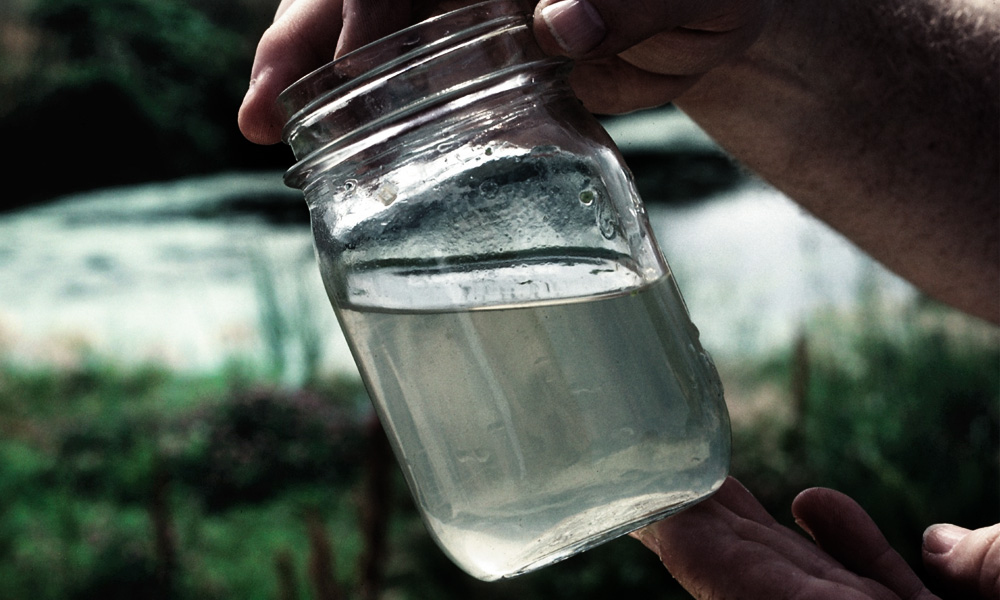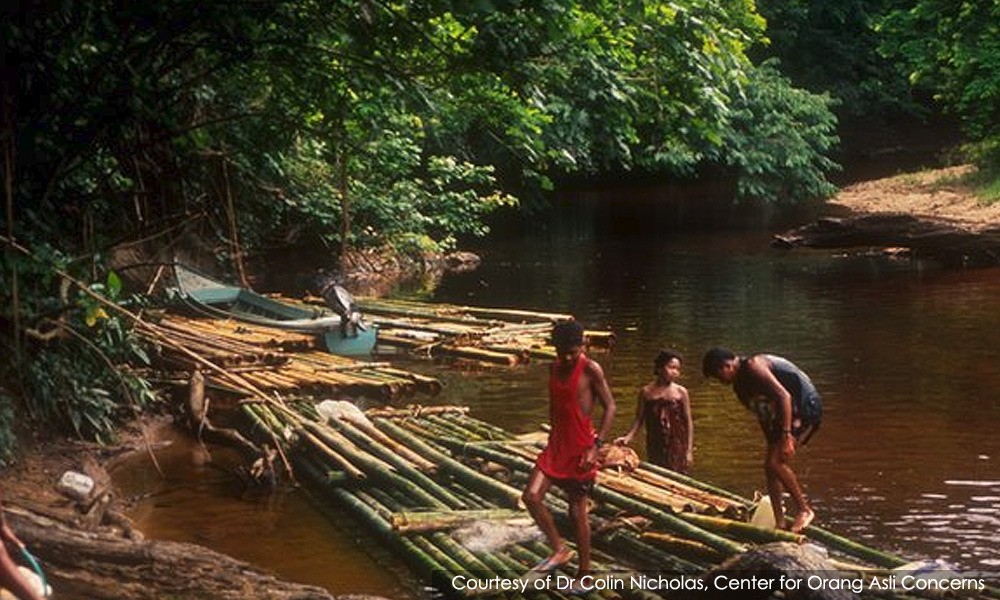
After a spate of controversies involving the Health Ministry and Orang Asli communities over the past several months, the ministry had set up separate committees to investigate the matter.
One committee was to determine the cause of 16 mysterious Orang Asli deaths in Kelantan, Terengganu and Pahang, while another investigated an allegation that Orang Asli women were coerced or misled into taking birth control medication.
Announcing the findings today, Health Minister Dzulkefly Ahmad said there is no truth to media reports claiming that Orang Asli women in Hulu Perak had taken birth control medication under duress.
He also said that the spate of deaths in Kelantan's Bateq community was due to a measles outbreak, confirming findings of an earlier report.
“In summary, the investigation finds that the articles published in the media (regarding the claims of forced contraception) are untrue. Also, the allegation that family planning services offered by the Health Ministry is meant to limit the number of children in the Orang Asli community is unfounded.

“On the contrary, the investigation found that the level of understanding and acceptance amongst the Orang Asli community in Hulu Perak, especially at the Dala Resettlement Scheme, towards health services is good, thereby refuting statements published in the media,” the minister said in a statement today.
In addition, Dzulkefly said the Hulu Perak investigation found that most the Orang Asli women understood their options for family planning and the side effects.
He said the investigation was conducted as a case-control study on July 17 and 18 in Kampung Air Bukit and Kampung Ong Jelmol, following the media reports on July 9 and 10.
Kampung Ong Jelmol is an Orang Asli settlement gazetted under the Dala Resettlement Scheme. Some families from Kampung Ong Jelpol had splintered off to set up Kampung Air Bukit where two women mentioned in the media reports resided, Dzulkelfy said.
Previously on July 9, a group of Orang Asli villagers submitted a memorandum to the government, which amongst others urged the government to stop providing birth control pills without sufficient details.
The following day, Malaysiakini quoted several activists alleging that Health Ministry nurses had coerced Orang Asli women into receiving the birth control treatments, including Temiar villager Nora Kantin who claimed she was pressured into taking an injection.

For the purposes of the study, Dzulkefly said women of reproductive age in Kampung Air Bukit, including the two women, were assigned to the “case” group while those from Kampung Ong Jelmol and health clinic patients were assigned to the “control” group.
The study interviewed 28 women of which 24 were Orang Asli and four were non-Orang Asli. Eight of the 28 women were in the case group, while the remainder were in the control group.
“The aim was to observe the consistency in delivering family planning services […]
“The investigation found that most of the Orang Asli women interviewed knew that the purpose of taking family control (medication) was to avoid pregnancy and allow mothers time to recover after giving birth.
“None (of the participants) said family planning is meant to limit the size of the Orang Asli population. They also denied health workers had coerced them into practising family planning.
“Some women had stopped practising family planning for personal reasons,” Dzulkefly said in his statement.
He added that the committee’s checks on the local mobile health services team and family planning cards found that standard operating procedures had been consistently followed.

As for the 16 deaths in Kuala Koh since June, Dzulkefly told a press conference at his ministry’s headquarters in Putrajaya today that an investigation confirmed that they were caused by measles.
An analysis of the surrounding environment and forensic reports have ruled out heavy metal poisoning as the cause of death, he said.
“The Health Ministry wishes to inform on the latest status of the measles outbreak and deaths amongst the Orang Asli in Kuala Koh, Gua Musang, Kelantan, from June 3 to Sept 10, 2019.
“Of the 16 deaths, four are confirmed to be due to measles, eight were related to the epidemiology of measles, while the cause of death for another four could not be determined because the bodies were in the advanced stages of decomposition,” he said.
He said that up to Sept 10, 213 cases of respiratory illnesses among Orang Asli had been reported such as fever, coughs, and cold-like symptoms.
“Out of that number, 123 cases including four deaths are confirmed via laboratory testing to be due to measles; comprising 75 cases of measles with three deaths in Kelantan, 44 cases of measles with one death in Terengganu, and four cases of measles with no deaths in Pahang,” he added.
Dzulkefly said the Environment Department, the Health Ministry and the Mineral and Geoscience Department had tested water samples from four locations in a bid to determine the cause or causes of the deaths.
Water samples were taken from ponds, rivers, and wells while food and soil samples were also taken to test for the presence of heavy metals, microorganisms and pesticides.
The water was found to contain disease-causing bacteria, but was nevertheless free from pesticides and was within quality standards for raw water.

Meanwhile, soil from the Bateq graveyards tested negative for two types of pathogens, namely those that cause melioidosis and leptospirosis. Tests on a food sample found no signs of heavy metals, histamines or microorganisms.
Dzulkefly said the contributing factors to the measles outbreak were poor vaccine coverage for the community and poor nutrition amongst Orang Asli children.
In addition, he said the Bateq’s nomadic lifestyle and custom of venturing into the jungle in cases of illness or death contributed to delays in seeking medical treatment, thus allowing the disease to spread further.
“The symptomatic cases detected in Kampung Gerdong, Sungai Berua, Hulu Terengganu, Terengganu and in Kampung Ulu Sat, Jerantut, Pahang are related to the measles outbreak amongst the Bateq in Kuala Koh,” he said.
Dzulkefly said his ministry is taking measures involving several agencies to contain the disease.
These include an immunisation campaign and other public health measures to ensure the food and water are safe. The Orang Asli are also being encouraged to seek early treatment at the nearest healthcare facility if they start showing symptoms. - Mkini


No comments:
Post a Comment
Note: Only a member of this blog may post a comment.